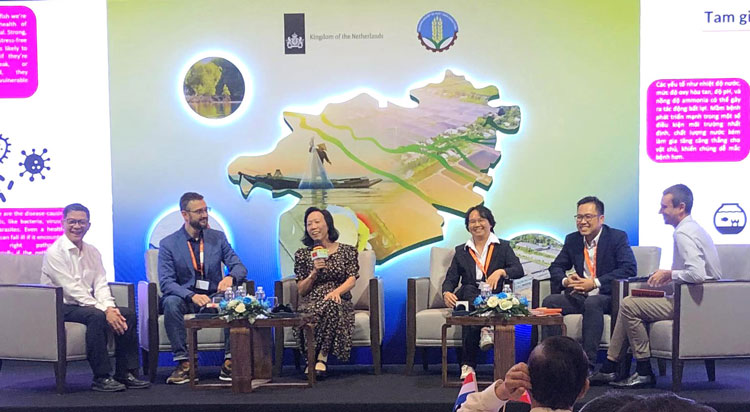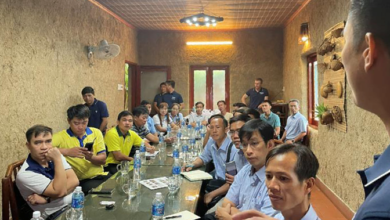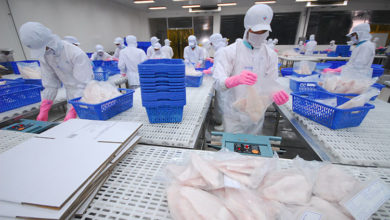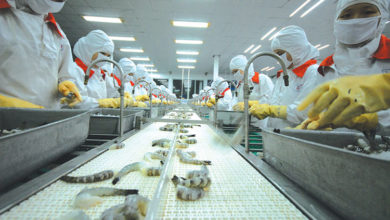Vietnam and the Netherlands collaborate on aquaculture in the Mekong Delta
On November 27, the Embassy of the Netherlands in Vietnam, in collaboration with the Ministry of Agriculture and Rural Development, organized a business forum to explore practical solutions for sustainable aquaculture in the Mekong Delta.
The forum provided a platform for public and private stakeholders from both Vietnam and the Netherlands to explore opportunities for cooperation in sustainable aquaculture in the Mekong Delta. This included the implementation of practical solutions, knowledge exchange, and technology transfer.
The collaboration between the Netherlands and Vietnam in the Mekong Delta has a long history, supported by strategic agreements on sustainable agriculture, food security, water management, and climate change adaptation.

The Mekong Delta is a key region in Vietnam for rice, aquaculture, and fruit production. In recent years, the Vietnamese government has introduced policies aimed at tapping into the region’s potential, driving socio-economic growth. Notably, Resolution No. 120/NQ-CP, issued on November 17, 2017, outlines a sustainable development plan for the Mekong Delta that adapts to climate change. This plan emphasizes restructuring agricultural production, focusing on fisheries, fruit trees, and rice, in alignment with distinct ecological sub-regions.
The aquaculture sector is being developed into a key economic driver in the Mekong Delta, aiming for large-scale, modern, competitive, and sustainable production. This includes strategies for restructuring production systems, enhancing regional strengths in breeding aquatic species, and utilizing advanced science and technology, such as mechanization and post-harvest innovations to reduce losses and increase the quality, value, and efficiency of production.
Thanks to its extensive river systems and vast plains, the Mekong Delta is Vietnam’s largest aquaculture and seafood export center, with brackish water shrimp and pangasius as the primary species. Pangasius farming is concentrated in provinces such as An Giang and Dong Thap, while shrimp farming is more prevalent in coastal provinces like Ca Mau, Soc Trang, Bac Lieu, and Kien Giang.
According to Phung Duc Tien, Deputy Minister of Agriculture and Rural Development, the total aquaculture area in Vietnam in 2023 was 1.3 million hectares, with the Mekong Delta accounting for 70% of the country’s total. The national aquaculture output reached 5.5 million tons, with the Mekong Delta contributing 61.8% of this total. The region also accounted for 57.6% of the country’s seafood export turnover, which amounted to $9.2 billion.
However, alongside these advantages, the region faces significant challenges such as climate change, salinity intrusion, environmental pollution, biodiversity loss, and increasing international market pressures, as noted by Tien.
Vietnam and the Netherlands have been collaborating for over a decade on sustainable agriculture, food security, and water management, particularly in the aquaculture sector. These efforts have driven innovation, scientific research, and the implementation of practical solutions for sustainable and resilient development.
The Netherlands is a global leader in sustainability practices, excelling in areas such as nutrition research, cooperative management, and high-tech aquaculture. These are areas where Vietnamese research institutions and businesses can collaborate for mutual benefit.
Acknowledging aquaculture’s importance to Vietnam’s socio-economic development, especially in the Mekong Delta, where 70% of the national aquaculture output is produced, Daniel Stork, Consul General of the Netherlands in Ho Chi Minh City, emphasized that the Netherlands is proud to offer tailored solutions to address the challenges faced by Vietnamese aquaculture farmers.
“Through cooperative mechanisms, Vietnam and the Netherlands can leverage resources to equip farmers with the knowledge and technology needed to adopt sustainable livelihoods and long-term environmental protection. Achieving this requires involvement from both public and private stakeholders,” Stork stated.
The event brought together policymakers, businesses, experts, academic institutions, and partners from both countries to discuss two main topics: the “disease triangle” in aquaculture and the exchange of experiences, project ideas, and practical solutions tailored to the specific needs of the Mekong Delta.
Nguyen Van Huu, a representative from the Directorate of Fisheries, proposed six areas for collaboration between Vietnam and the Netherlands in sustainable aquaculture. These include water management, circular economy models, advanced technology transfer (such as IoT and AI applications), breeding programs, capacity building and training, market and trade development, and climate change mitigation.
In 2023, the Netherlands launched the Combi-Track program, an integrated approach to promoting sustainable economic development, trade, and investment for aquaculture in the Mekong Delta. The program fosters public-private cooperation between Vietnam and the Netherlands, focusing on concrete actions to create jobs, improve water quality, and reduce CO2 emissions.
Michiel Smit of the Netherlands Enterprise Agency highlighted that the success of sustainable aquaculture amid challenges such as disease outbreaks, rising production costs, environmental pressures, and water management issues can only be achieved with a strong focus on water management, food safety, farm management, and technology applications.
VFM






